Image
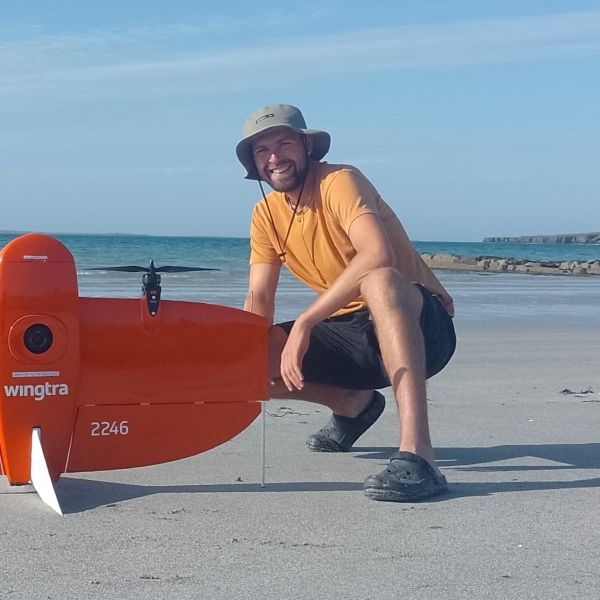
-
Joe Boyle (he/him)
Social Ecology Researcher and Educator
- 30 Under 30
- 2025
- Changemaker Grantee
Joe is a researcher and educator who explores peoples' relation to nature, particularly to coasts, and how we can build good futures to support people and places.
United Kingdom, Age 30
2025–2026 EE 30 Under 30 Changemaker Grant Project
A Sanday Storybook
Sanday, in Scotland’s Orkney Islands, has a unique ecological and cultural heritage, which I hope to share and celebrate through A Sanday Storybook. With support of the Changemaker Grant, I will collaborate with residents (school groups, retirees, heritage volunteers, artists), collecting photographs and stories that reflect everyday experiences of coastal life and human-Ocean connections. The project builds on my award-winning research on Sanday’s social ecology and extends my previous workshops exploring how art, education, and storytelling (an Orcadian speciality) can deepen environmental care.
How are you using education to build more sustainable and equitable communities? Tell us about your EE work and impact.
I use education to help people see themselves as part of nature and as active participants in shaping its future. My work blends research, teaching, and community engagement to make environmental learning collaborative, creative, and inclusive.
In Oxford, I co-design outdoor learning guidance with teachers across the UK, supporting schools to integrate nature into everyday teaching. In Scotland, I work with island residents to connect seagrass restoration with cultural identity, co-creating a community storybook that shares local voices and marine science. I further support Kilómetro Uno in Tijuana to develop their outstanding programming. All projects put knowledge exchange and equity at their core, valuing experience and place as much as expertise.
I also mentor students and educators to develop confidence outdoors, and partner internationally to share participatory methods that make environmental education more accessible. Across all my work, I try to build reciprocal learning communities where knowledge flows all ways: between researchers and residents, teachers and learners, humans and ecosystems.
Education, for me, is a tool for belonging and empowerment. When people feel that sense of connection, they begin to lead change from within their own communities, creating a more sustainable and equitable future for all.
Tell us about your journey to where you are today. What inspired you? What has your path been like?
I grew up by the sea in Brighton, UK, and my early fascination with the Ocean grew over time into a deep belief that people and nature are inseparable. Working in and around education showed me that reframing and taking ownership is one of the most powerful ways to reconnect people to their land and waters.
At sixteen, I began working in education for young people, and at eighteen, I co-founded a small NGO offering nature-based wellbeing to teenagers excluded from school. Those experiences showed me how time in nature could restore confidence, curiosity, and community. Since then, I’ve followed that thread through many settings (working as a dive guide, warden, university lecturer, and researcher), each role shaping how I understand the link between ecology and empathy.
Now, my work focuses on helping others find belonging in nature: co-creating marine education with island communities, guiding teachers to teach outdoors, and encouraging students, artists, and other researchers to bring environmental thinking into their own disciplines. My path has been shaped by both saltwater and conversation, learning from people and places alike. What inspires me most is seeing others step into their own leadership, discovering that restoring ecosystems and relationships are really part of the same work.
How can people learn more about or support your work?
My work is rooted in openness and collaboration, with many ways for people to connect, learn, or get involved. You can explore current projects, publications, and creative outreach through joescottboyle.github.io, which shares updates from my research, teaching, and community partnerships. I also share reflections and opportunities for collaboration on LinkedIn, where I often post about participatory research, environmental learning, and nature connection.
I’m always happy to share practical resources (lesson plans, co-design frameworks, and examples of place-based projects) to help others adapt or build on this work. Educators and researchers can also reach out to collaborate on initiatives linking science and storytelling, or to co-develop participatory approaches to environmental learning. I'm looking to build out my work in the arts, so if you're interested in working with me on that, please say hi.
Support can take many forms: sharing experiences and methods, amplifying local community projects (such as the outstanding Kilómetro Uno), or chatting about how we can make nature recovery more inclusive and creative. My work thrives on exchange and shared curiosity, so I warmly welcome anyone who wants to connect, contribute ideas, or bring this practice into their own place.
A Little More About Me
Who (or what) do you look up to as inspiration?
I look everywhere, from wildlife, to my own friends and family, to the famous icons of enviromentalism, to ecological processes, or a young person asking a really honest question. I don't want to replicate what other people have done or are doing, but I believe we all have something to learn from each other. Right now, the steadfastness and resilience of the people of Gaza, under brutal occupation and genocide, is a call for us each to do better and I feel that keenly in all I do.Where do you feel most at peace and why?
In the water, where I am most in my body and my mind is calm. I am both held and free.Do you prefer sunrise, sunset, midday, or midnight?
Staying up through midnight to watch summer sunrise.What makes you most excited to be an EE30U30 awardee?
I look forward to meeting other awardees and learning from them as outstanding people who are sharing their work. I hope to bring my own contributions to NAAEE awardees past, present, and future. We need to work together and I'm lucky to be part of this group.
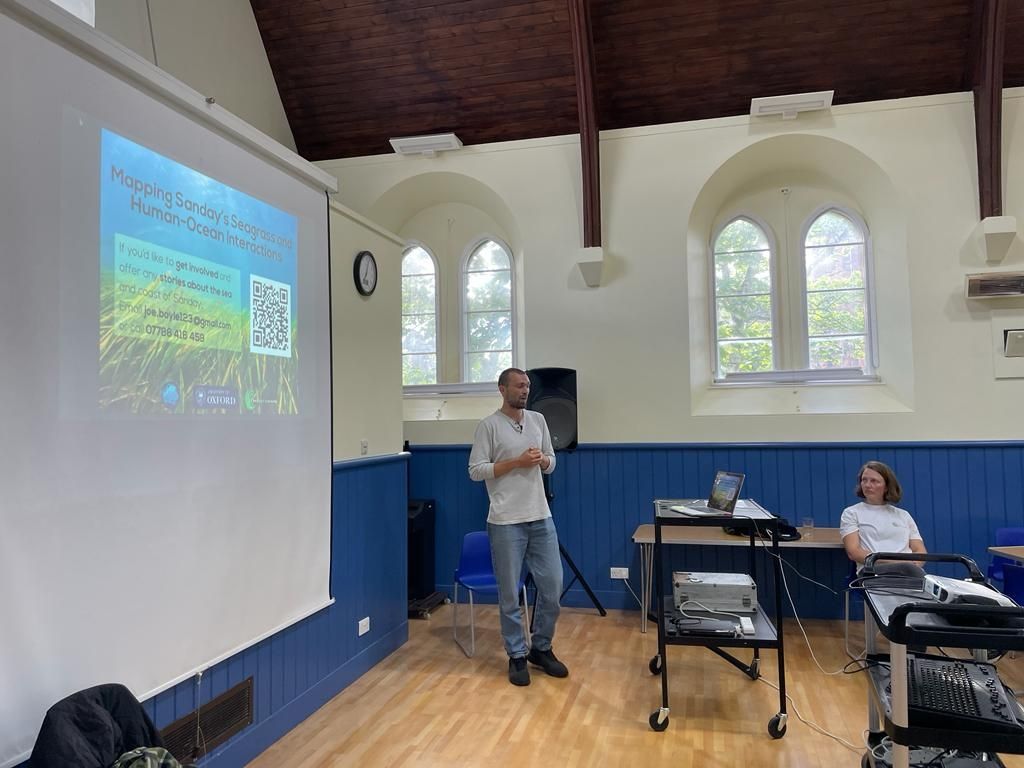
Joe speaks at the Orkney Seagrass gathering, outlining his research. Photo credit: RJ Lilley
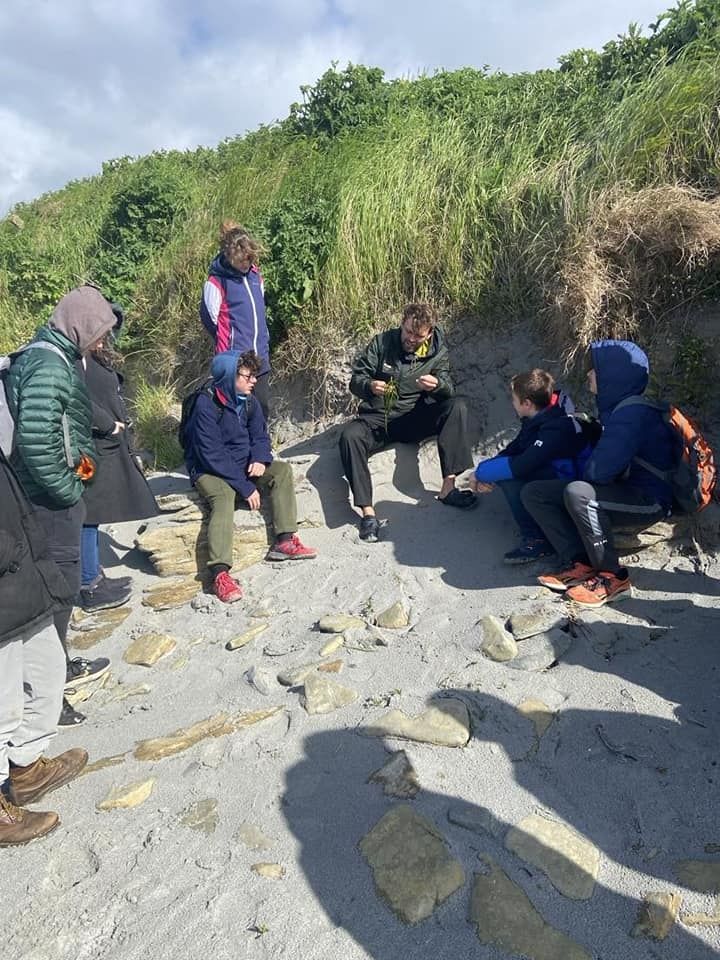
Joe explains seagrass to a class from Sanday Community School during a field trip and co-design session. Photo credit: Sanday Community School
Joe snorkels over a kelp bed in Sanday, Orkney, Scotland. Photo credit: RJ Lilley
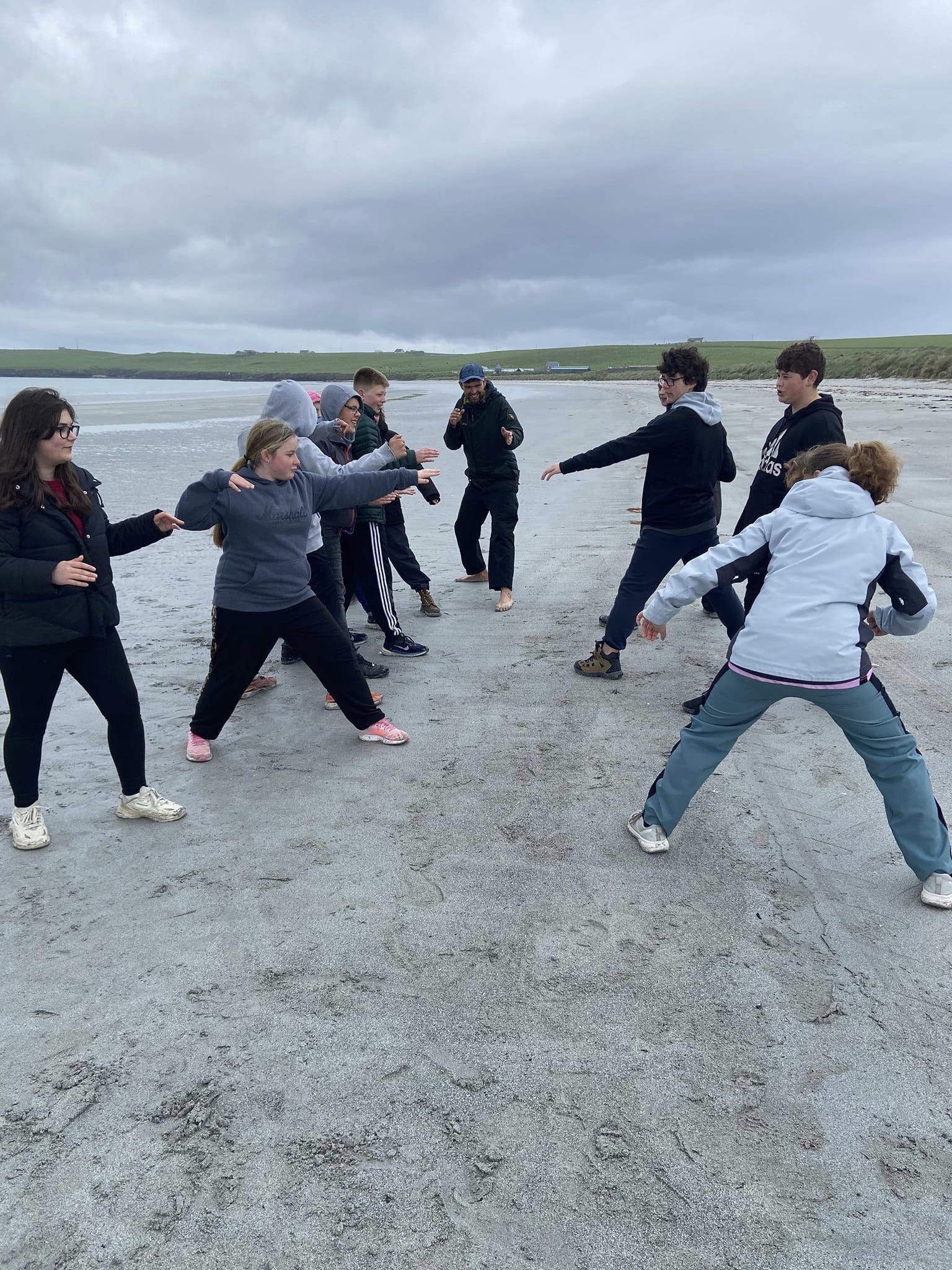
Joe leads an outdoor game with Sanday Community School. Photo credit: Sanday Community School
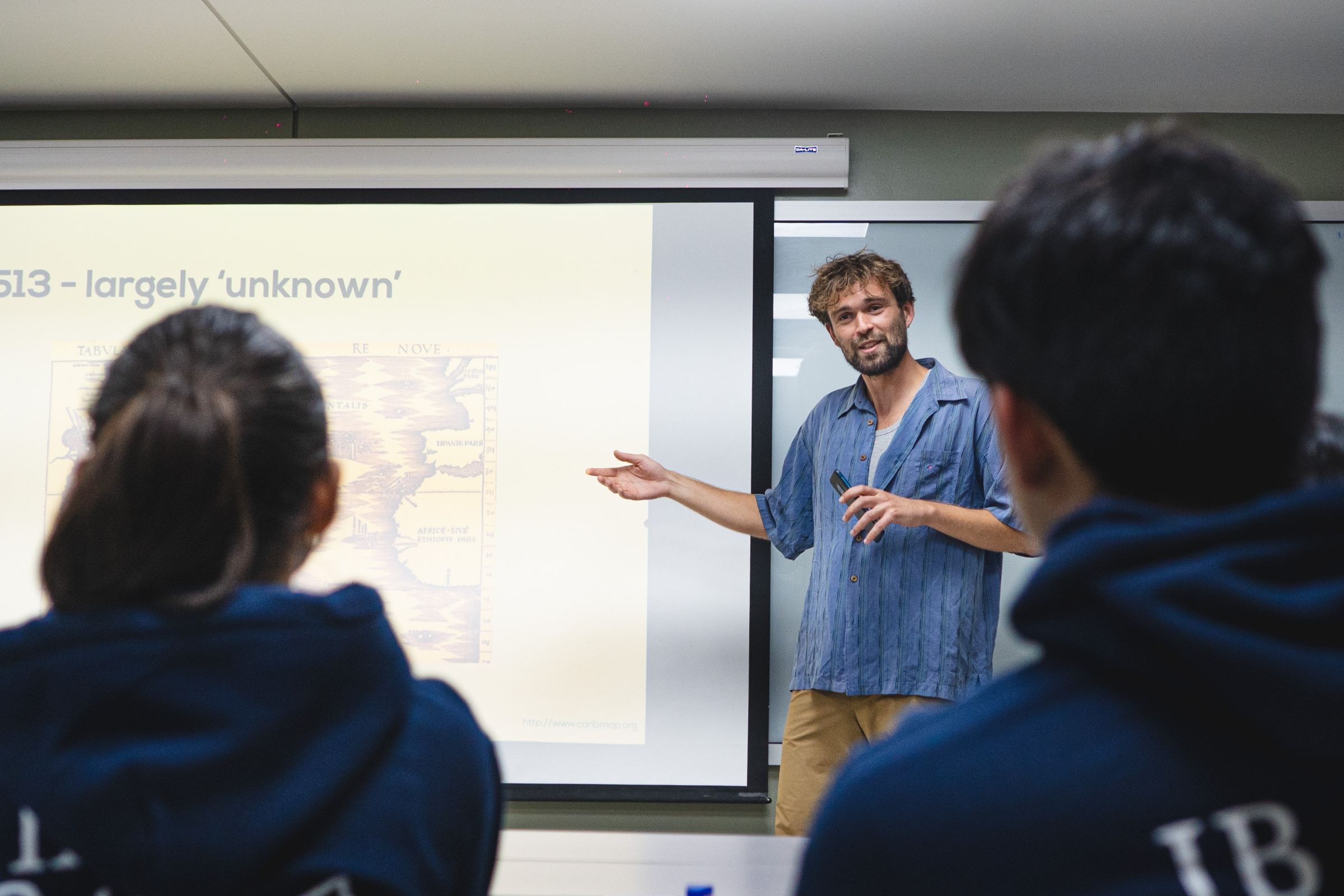
Joe leads a critical cartography session at CETYS University, Tijuana. Photo credit: Abraham García Alvarez
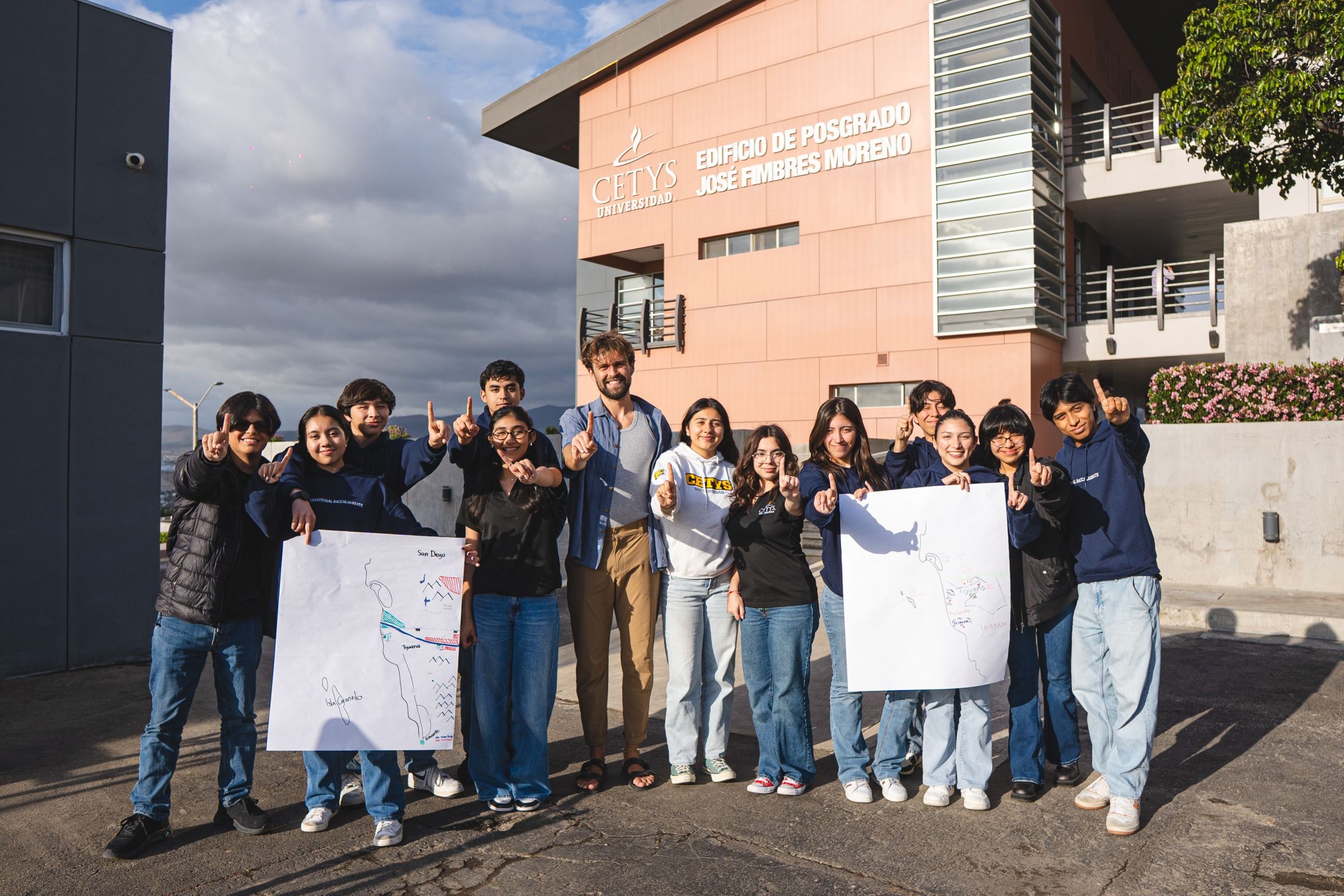
Joe with the class of IB students he worked with at CETYS University, Tijuana. Photo credit: Abraham García Alvarez
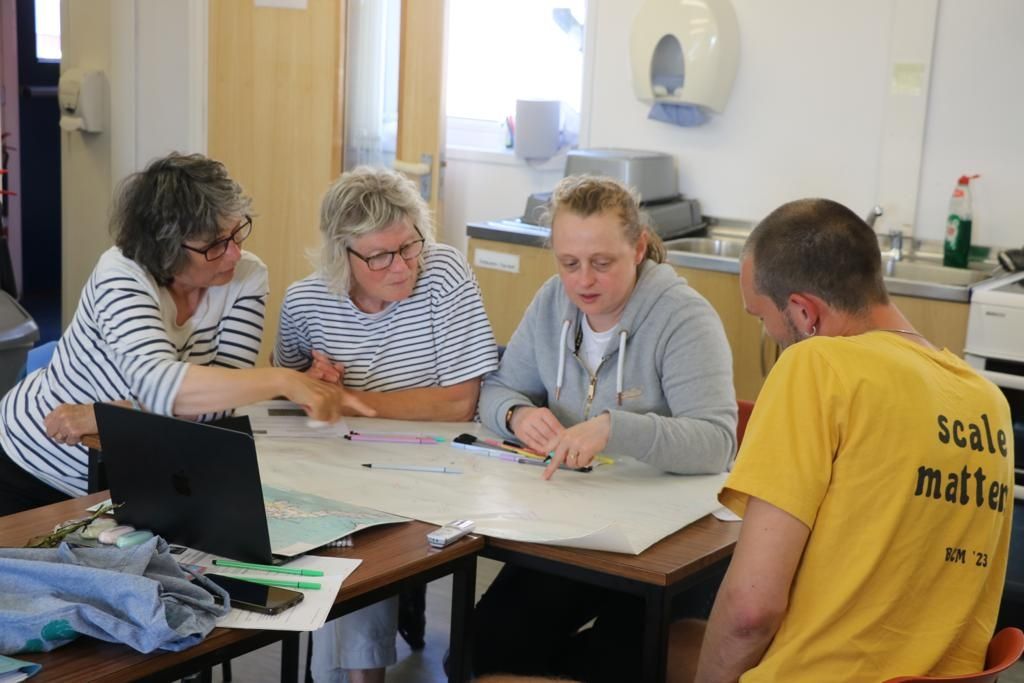
Joe leads a participatory mapping workshop in Sanday, Orkney, Scotland. Photo credit: RJ Lilley